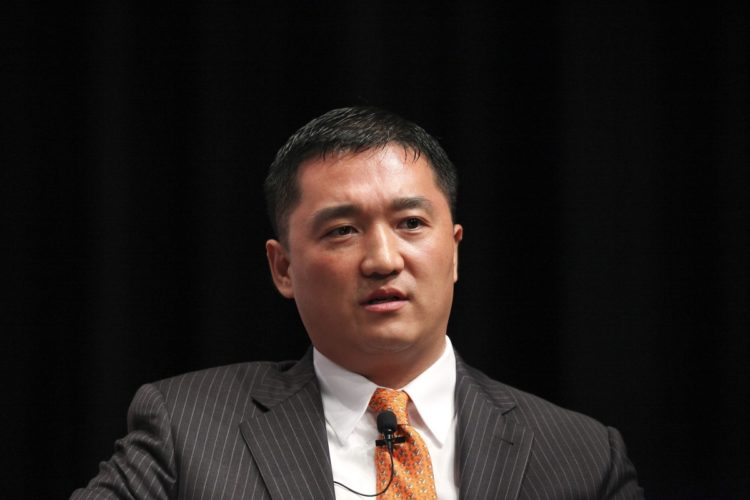U.S. Drops Case Against N.Y. Financier After Judge Slams FBI

(Bloomberg) —The U.S. moved to drop fraud charges against Benjamin Wey, the founder of the private equity firm New York Global Group, after a judge threw out thousands of pages of documents she said were illegally seized by the FBI in 2012.
The dismissal by prosecutors in Manhattan comes less than three weeks after the government surrendered in another high-profile white-collar case. The U.S. last month dropped charges against two former JPMorgan Chase & Co. traders accused of hiding more than $6.2 billion in trading losses on wrong-way derivative bets, after determining they couldn’t rely on the testimony of star witness Bruno Iksil, the Frenchman at the center of the case who was dubbed the London Whale.
Wey, who made a career of bringing Chinese companies onto U.S. exchanges, was indicted in 2015 for fraud in connection with three reverse mergers. He was accused of using family members to help him secretly amass ownership of large blocks of stock in companies he took public and then manipulated the price of their shares.
FBI Went Too Far in Searching N.Y. Financier’s Files, Judge Says
“I was wrongly charged in the first place, Wey said in a statement. This ordeal devastated our employees and our families, has done irreparable harm to our lives and closed our prospering businesses. We are thankful that this judgment will help clear my name.
Prosecutors said in a filing on Tuesday that the case was based in significant part on the evidence seized in overly broad searches of Wey’s home and office. U.S. District Judge Alison Nathan ruled in June that the government’s conduct reflected at least, grossly negligent or reckless disregard of Wey’s constitutional rights.
Charges are still pending against Seref Dogan Erbek, a broker in Switzerland who was charged with aiding Wey in the alleged scheme.
Dawn Dearden, a spokeswoman for Acting U.S. Attorney Joon Kim, declined to comment on the decision to drop charges against Wey. Wey and his lawyer will answer questions from the press at the Manhattan federal courthouse on Wednesday, according to a spokeswoman for the lawyer. Wey will be at the courthouse to have a GPS monitor removed from his ankle.
Prosecutors claimed that from 2007 to 2011 Wey used relatives in China and the U.S. to help him secretly gain control of large blocks of stock in companies he took public through reverse mergers with U.S. shell companies. He then made tens of millions of dollars by manipulating the companies” stock prices, according to the charges.
Reverse mergers involve using a closely help firm to buy a shell company already public on an exchange, allowing it to list shares without the scrutiny of a public offering.
During a January 2012 search of Wey’s Wall Street office and apartment, agents seized at least 14 terabytes of computer information and items that included family x-rays, medical prescriptions, documents tied to Wey’s divorce and even his child’s PSAT college test scores. The government kept the property for at least three years.
This case should serve as a powerful reminder for years to come that the government must adhere to fundamental safeguards of our privacy and liberty when conducting searches, Wey’s lawyer, David Siegal, said in a statement.
In an unrelated case, a New York jury in 2015 awarded $18 million to Hanna Bouveng, a Swedish intern at Wey’s firm who claimed he coerced her into sex, then fired her and trashed her online as a prostitute and drug addict. A judge later reduced that amount to $5.6 million.
In the London Whale case, prosecutors had spent years trying unsuccessfully to get Javier Martin-Artajo and Julien Grout to face charges in the U.S. A Spanish court in 2015 shot down U.S. efforts to extradite Martin-Artajo from that country. And Grout, who was living in his native France, wasn’t subject to extradition. In court papers, prosecutors also pointed to statements and writings by Iksil, which include a 400-page manuscript on the case, claiming the government no longer believes that it can rely on the testimony of Iksil in prosecuting this case, even if the defendants appeared.
The case is U.S. v. Wey, 15-cr-00611, U.S. District Court, Southern District of New York (Manhattan).



No Comment